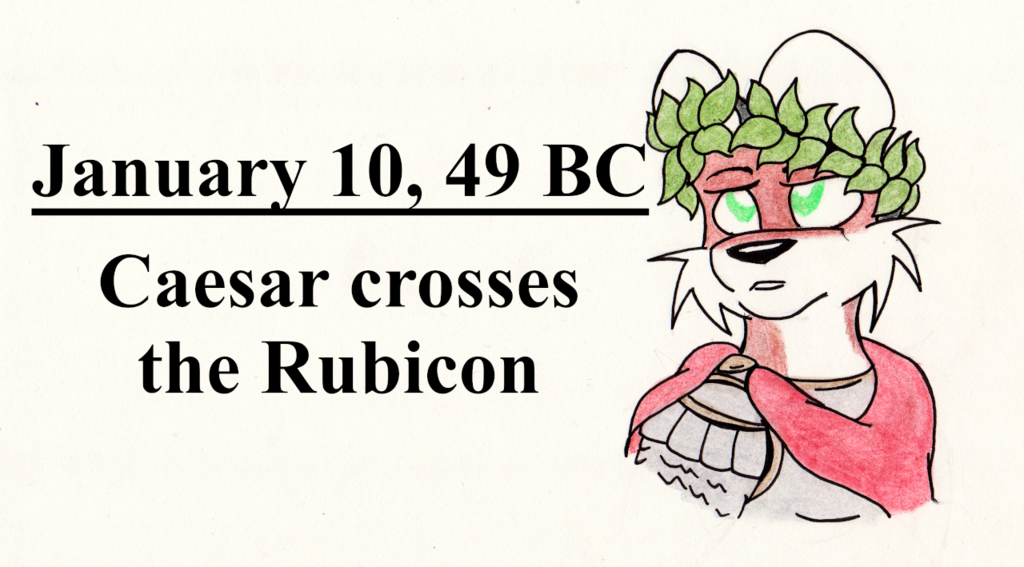Sign In
CloseOn January 10, 49 BC, Julius Caesar violated Roman law by leading the Legio XIII Gemina (13th Twin Legion) across the Rubicon river and into Italy proper. Caesar had been part of the First Triumvirate (alongside Pompey and Marcus Licinius Crassus) and had been appointed governor over the regions of Transalpine Gaul, Cisalpine Gaul, and Illyricum. As governor, he was also given command of four legions which he used in his conquest of Gaul and Britain, helping to make him both a war hero and a hero to the Roman people. However, he had also made enemies of the Roman Senate and, when the reign of the Triumvirate had come to an end, the Senate favored Pompey to be sole consul and demanded Caesar give up his military command. Fearing prosecution and being rendered politically powerless at the end of his consulship, Caesar assembled his armies and marched south despite the act of leading a legion into Italy being an act punishable by death.
Julius Caesar's bold act sparked a civil war within Rome. Pompey and his supporters, fearing the worst and unaware that Caesar's force consisted of only one legion, fled south to build their own armies. These forces were soon forced to the flee the Italian peninsula itself, giving Caesar time to pacify Hispania and to return to Rome to be appointed dictator and extend his consulship. By March 17, 45 BC, Caesar emerged from the civil war victorious. In the aftermath of the war, Julius Caesar would be appointed dictator for life. Following his assassination on March 15, 44 BC, another civil war ravaged Rome and eventually established the Roman Empire
Submission Information
- Views:
- 183
- Comments:
- 0
- Favorites:
- 2
- Rating:
- General
- Category:
- Visual / Traditional




